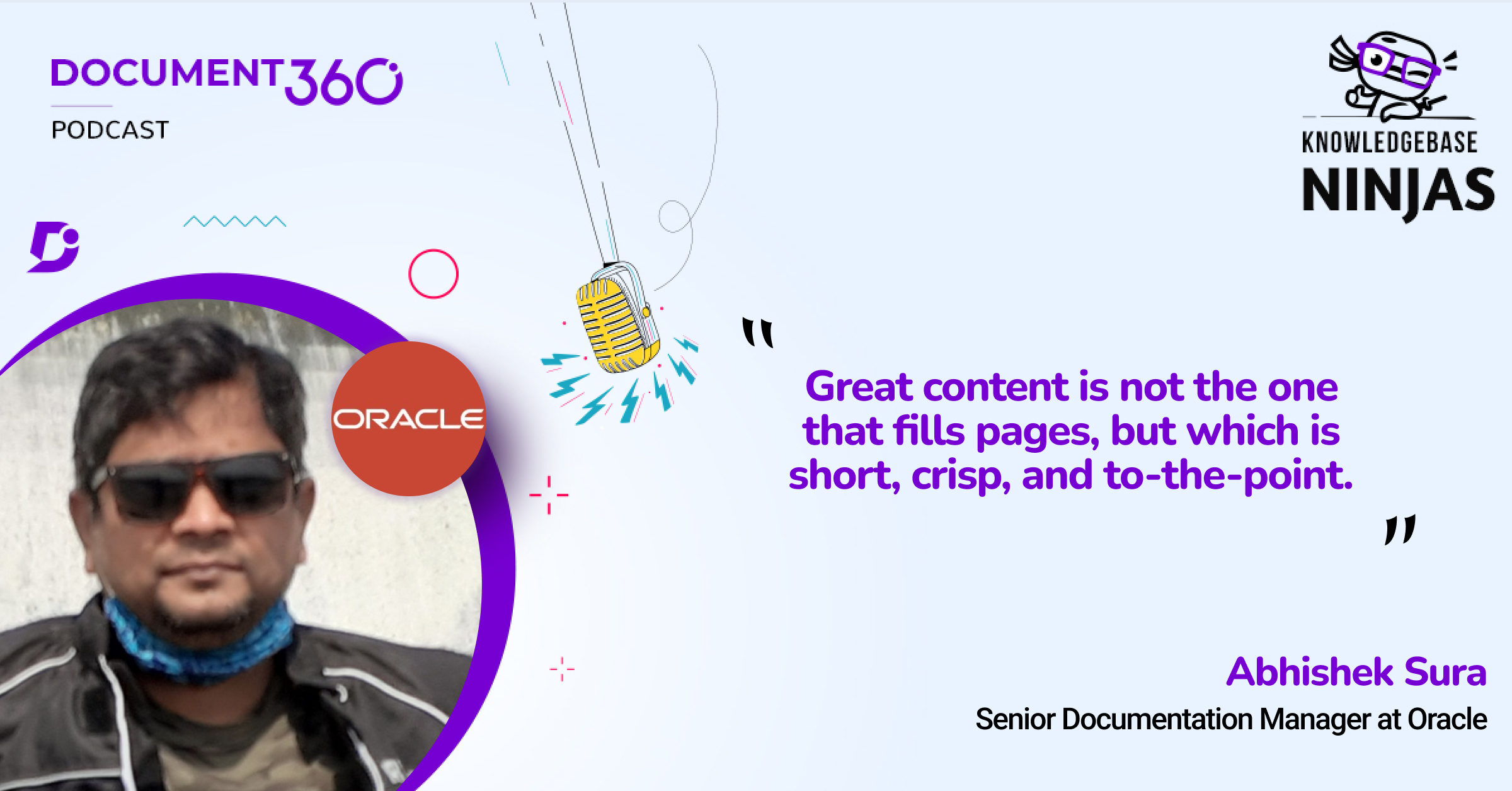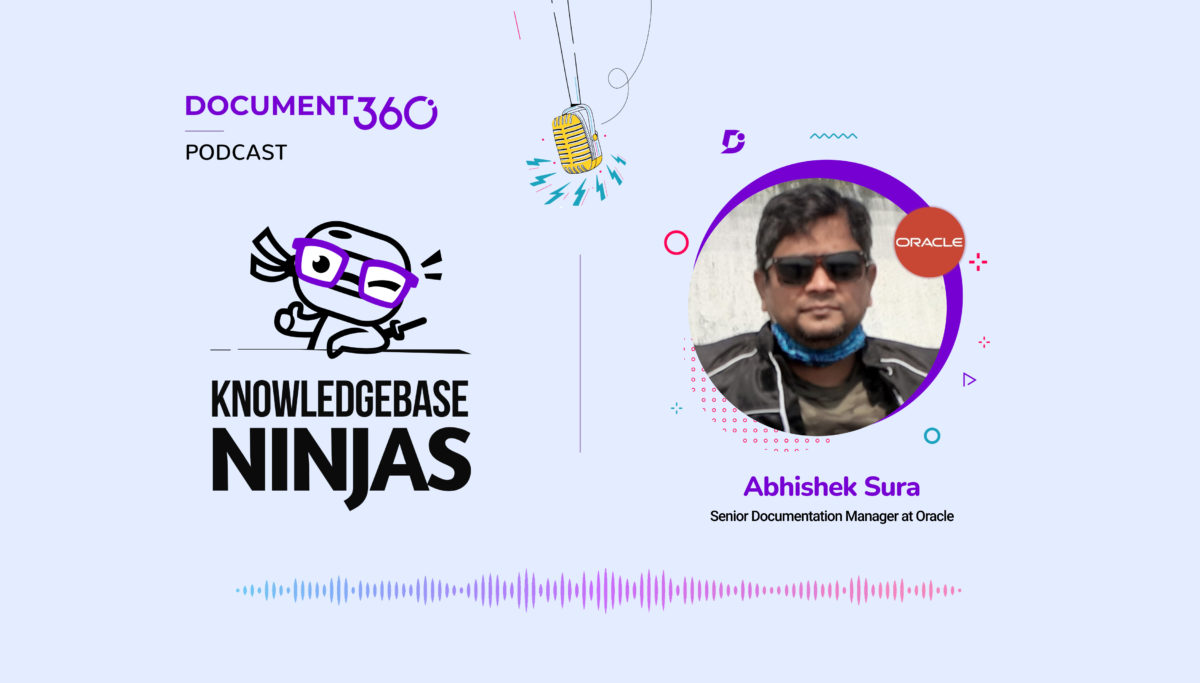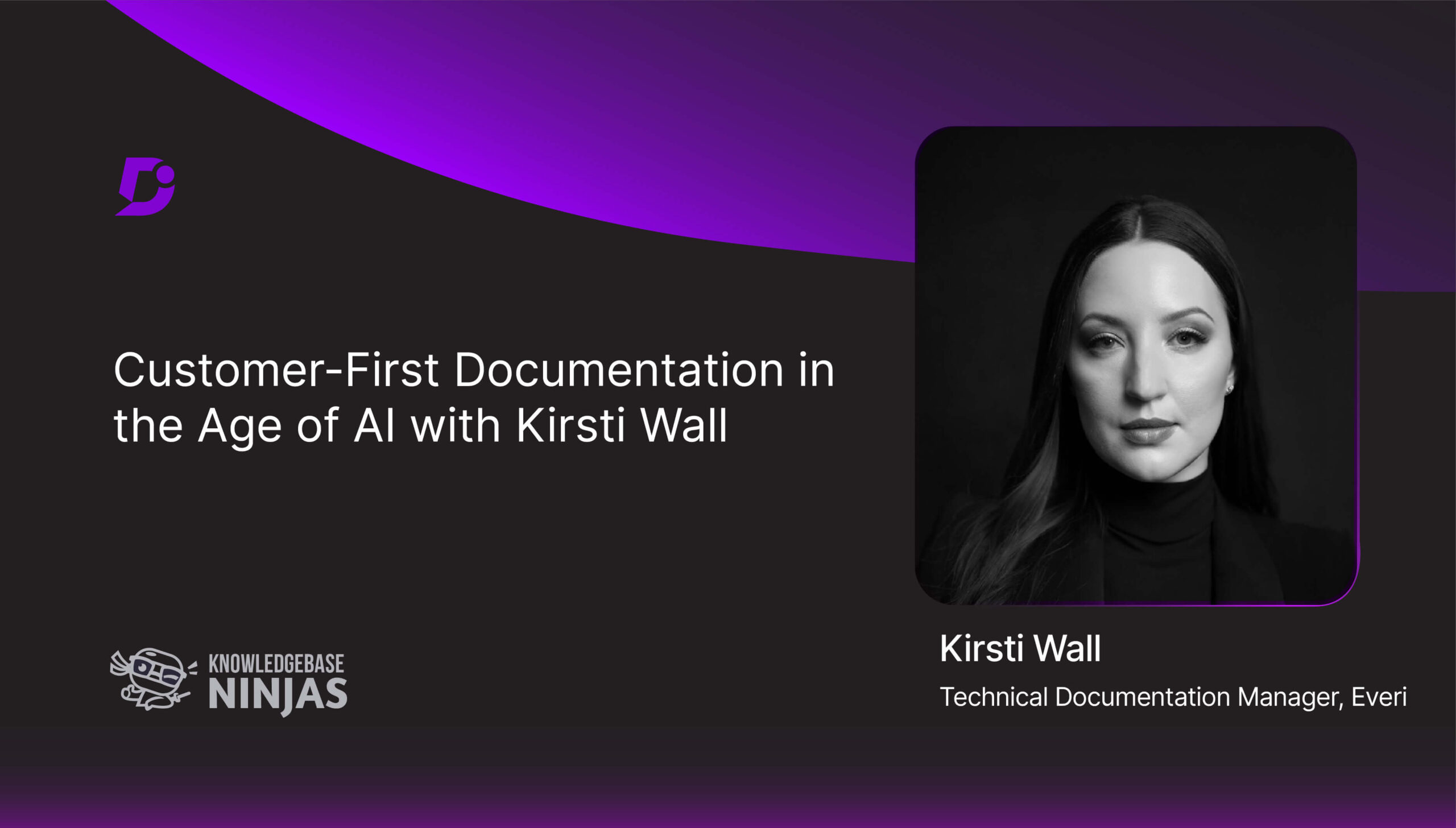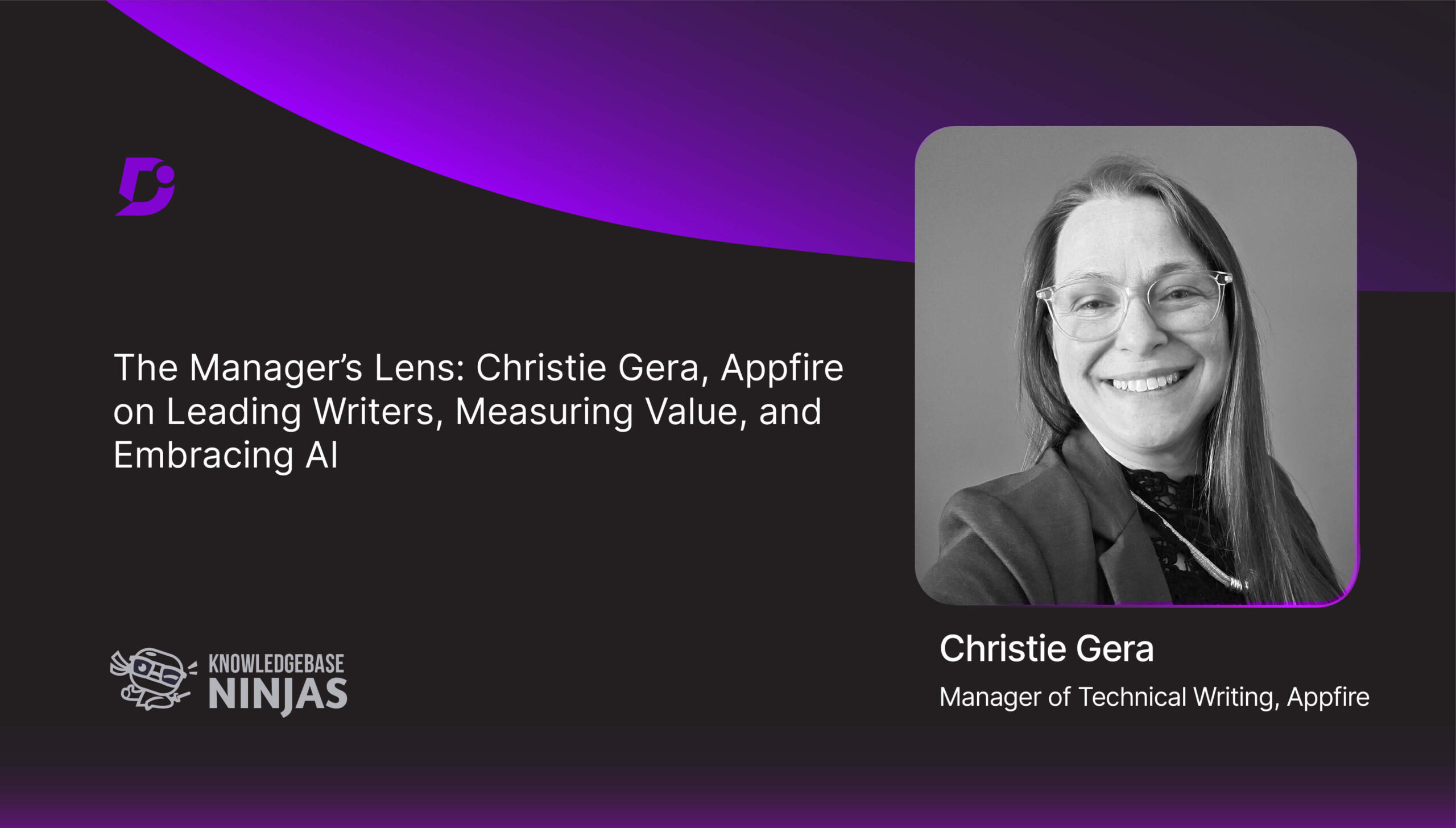In this episode of The Knowledgebase Ninjas Podcast, Gowri Ramkumar is joined by Abhishek Sura, Senior Documentation Manager at Oracle. They discuss the technological evolution of documentation, the significance of consequential and API documentation, and the fundamentals needed to evolve as a technical writer.
Key Facts
- Abhishek’s LinkedIn
- Oracle’s website
- Abhishek holds a Bachelor’s Degree in Computer Science (BSC) from Osmania University
- Abhishek has two decades of versatile experience and expertise in technical documentation, with eight years of management and leadership experience
- Abhishek is an avid media and communication personnel with expertise in technical documentation, APIs – application programming interfaces, Arbortext, curriculum development, and RoboHelp
- Oracle is one of the world’s leading cloud technology companies that has created the world’s first autonomous database, which helps the organization with data security
Key Takeaways
- Abhishek started his journey as a technical writer in 2000 at SDG Software Technology. Over the next few years, he worked as a senior technical writer and content lead at multiple companies
- In 2002, he joined Infosys, where he got a chance to apply his tech-savvy skills and computer science knowledge. Since then, he has grown considerably in the field of technical documentation
- In 2011, he joined Oracle as a Senior Principal Technical Writer. After roughly three years, he was promoted to Documentation Manager. Later, he further climbed up the ladder when he became the Senior Manager of Documentation
- Oracle is a cloud-based computer technology company known worldwide for its unique software products and services. Oracle develops and sells computing infrastructure, software, and database management systems to different companies and helps them improve their work efficiency
- Abhishek’s educational background and experience while working with several companies have helped him understand the basic framework of how technology and documentation work and evolve together
- Abhishek believes that the best way to adapt to changes and grow successfully is by curating a tech-savvy framework that remains constant yet open and flexible to innovation
- At Oracle, the technical documentation team works in a structural way where every writer has a say and is involved throughout the entire documentation process
- Abhishek believes the key to state-of-the-art documentation is having a collaborative and multi-dimensional team that adapts to process evolution as per the customer’s needs and expectations
- He applauds the company’s effort to keep the team’s efficiency and versatility intact at every stage of the product by keeping them involved in planning, designing, developing, and delivering the documentation
- Abhishek talks about how his team has evolved and been shaped over the past decade at Oracle. For example, a decade earlier, they only focused on internal processes and failed multiple times. At the time, their documentation success rate was as good as 90%, but it was stuck there
- However, with automation integration, technological advancement, and including customer feedback as a constant process, they have finally moved above that 90%, which he considers a remarkable success
- “The key lesson for documentation success is to plan the entire process in a structural and consequential way, leveraging automation tools whenever possible”
- He strongly believes that “regardless of the designations, everybody’s input is valuable and can make the documentation better”
- Abhishek advises every technical writer who wants to move up the ladder to go up and beyond to understand the user’s needs. It is essential to get into the user’s mind and acknowledge their perspective of how they would like to consume the documentation
- Furthermore, he shares that achieving the first 90% of documentation success is not the hard part. However, taking it from 90 to 100% is what requires dedication, expertise, experience, and out-of-the-box thinking
- Abhishek believes that there is no team lead concept in their company, but they have managers and individual contributors (IC) who are the writers, and they all report to the Vice President. The writers or the ICs have different job position levels, such as:
- Associate technical writer
- Principal technical writer
- Senior technical writer
- Documentation manager
- Senior manager
- At Oracle, there are three privacy avenues to the documentation’s accessibility and view;
- General Public: 95% of documentation is accessible publicly at the Oracle help centre
- Private Clients: only the clients have access to Oracle customer support
- Advanced Users: only these users have access to Oracle’s private blogs
- Abhishek shares that “to rank higher on search engines and get more organic traffic, it is important to ensure that all documentation pages are SEO-proof.” The process of SEO should be based on a great content strategy with relevant keywords and links
Key Resources
What documentation-related advice would Abhishek give to his 20-year-old self?
“Keep your writing language crisp and short; nobody has time to read pages”
Abhishek shares that writing long, keyword-stuffed pages will do no good. People are impatient and want quick answers, so even with the content today, minimalism is the key to success.
Subscribe to Knowledgebase Ninjas
Instructions on how to follow, rate, and review Knowledgebase Ninjas Podcast are here.





 –
– 

